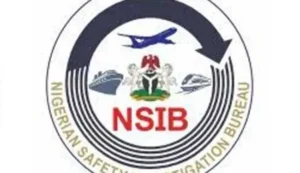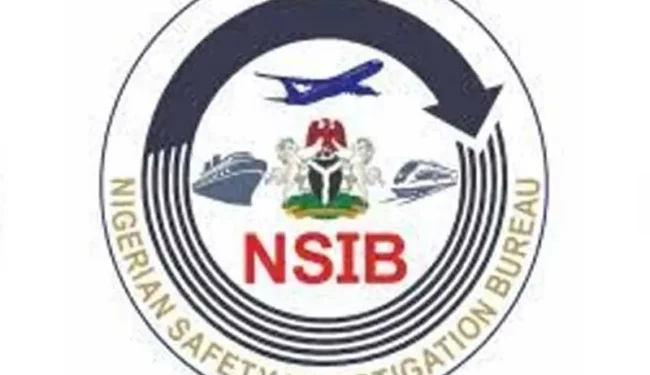The Director-General of the Nigerian Safety Investigation Bureau (NSIB), Capt. Alex Badeh Jnr., urged stakeholders this weekend to unite in making safety the cornerstone of all modes of transportation in Nigeria.
He expressed concern over the lack of cooperation from certain transportation and maritime-related government agencies, noting that many treat safety issues as confidential matters.
Speaking at the inaugural Transport Summit in Lagos, organized by the Transportation Correspondents Association of Nigeria (TCAN), with the theme “Intermodal Transport: Prospects and Challenges,” Badeh emphasized the critical importance of safety in transportation.
Historically, the NSIB, previously known as the Accident Investigation Bureau (AIB), focused solely on investigating air transport accidents in Nigeria. However, following amendments to its Act, the Bureau is now empowered to investigate accidents across all modes of transportation, following the model of the United States’ National Transportation Safety Board (NTSB).
Badeh stressed the need for enhanced collaboration among government agencies to extend the safety standards observed in the aviation sector to other transportation modes. He highlighted that while aviation is the second most regulated industry globally, with safety as its primary focus, similar stringent regulations are lacking in other sectors.
“The aviation industry is the second most regulated industry in the world, after medicine. We see heavier regulations in industries with higher loss of life. Unfortunately, outside aviation, many treat safety as a secret. When we reach out to other agencies, they often respond, ‘We are not aviation; why should we collaborate?’ When accidents happen, we send letters to these agencies, but they frequently ignore us. As a Bureau, we cannot be everywhere; for instance, some maritime agencies are reluctant to work with us,” he remarked.
Badeh reiterated the NSIB’s commitment to enhancing safety across transportation sectors, emphasizing that the Bureau’s investigations aim to protect public safety rather than assign blame.

“At NSIB, we seek full cooperation from other agencies. We are ready, and Nigeria is ready. Preventing accidents is not solely our responsibility as investigators or regulators; it requires public involvement as well.
“I encourage TCAN and other agencies to educate the public further. Let us collaborate to make safety the foundation of our transportation system in Nigeria,” he concluded.
Dr. Kayode Opeifa, a former Commissioner for Transport in Lagos, also spoke at the Summit, stating that with the establishment of the NSIB as a multimodal investigation agency, it is essential that agencies do not attempt to investigate accidents independently. Opeifa, who serves as the Executive Director of the Centre for Sustainable Mobility and Access Development (CenMAD), asserted that determining the cause of an accident without a proper investigation is misguided.
Additionally, Mr. Michael Ogunsola, Head of Business Development for the Lagos Area Office of the National Inland Waterways Authority (NIWA), highlighted the Authority’s efforts to reduce frequent accidents on the waterways. He acknowledged the lingering perception that NSIB focuses solely on aviation and reaffirmed the Authority’s readiness to partner with the Bureau to improve safety on the waterways.




